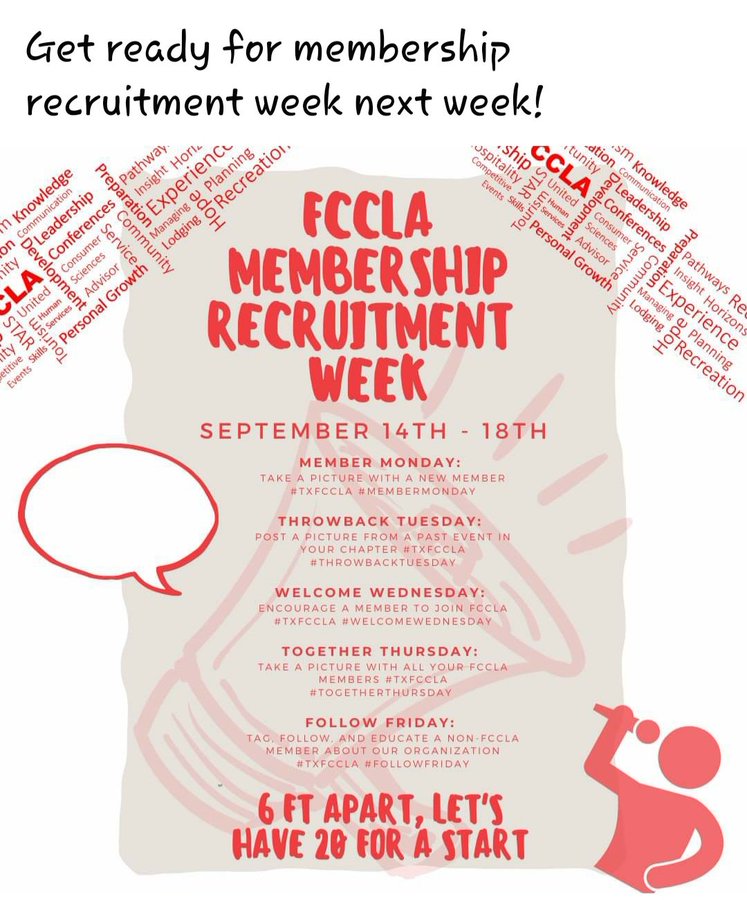We have compiled a list of highlights in Career Technical Education (CTE) from this week to share with you.
TWEET OF THE WEEK
Today, we remember and honor those who lives were lost on 9/11. Thank you to all our service men and women for your dedication to protect our freedom. pic.twitter.com/mxUrKITlil
— TN Dept of Education (@TNedu) September 11, 2020
CTSO OF THE WEEK
McAllen Independent School District in Texas is gearing up for recruitment week for one of their Career Technical Student Organizations (CTSOs). Check out the fun activities planned to bring in new Family, Career and Community Leaders of America (FCCLA) members next week!

NEWSLETTER OF THE WEEK
Cass Career Center, a public technical school located in Missouri, published their September newsletter this week. Read how the culture at the technical center has shifted to, “learn by unlearning.” The newsletter also shares how learners and the technical center staff are doing their parts to keep the campus safe during the pandemic.
STATE PROFILES OF THE WEEK
The College in High School Alliance (CHSA) and the Level Up coalition published Unlocking Potential: A State Policy Roadmap for Equity and Quality in College in High School Programs. State CTE leaders can leverage this resource as they design and implement policies that drive meaningful change in access, equity, and quality for college in high school programs. CHSA newly released three state profiles of recommended policies already in place in Colorado, Indiana, and Washington. View the state profiles here.
LEGISLATIVE UPDATE OF THE WEEK
Co-Chair of the House CTE Caucus Glenn “GT” Thompson (R-PA) published an article about how the pandemic underscores the demand for CTE. In this op-ed, Representative Thompson discussed the need to support CTE learners, and the role that CTE has in economic resiliency.
RESOURCE OF THE WEEK
In 2018, North Carolina Governor Roy Cooper announced the Finish Line Grants program, a wraparound program to help learners in North Carolina navigate financial emergencies. The program was designed to improve credential attainment rates by limiting unexpected financial burdens that may prevent a student from completing a postsecondary degree or credential.
View a full profile on this policy in our Learning that Works Resource Center.
Brittany Cannady, Digital Media Associate
